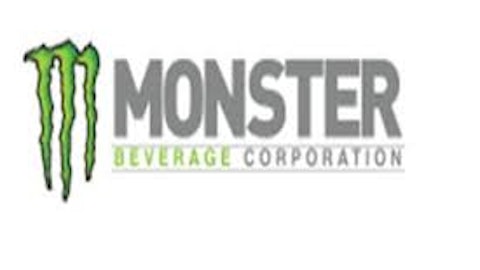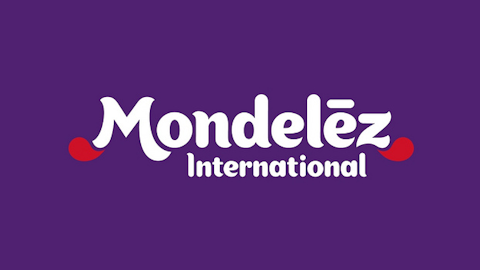The soft drink industry is generally considered a mature, saturated market that is dominated by some major players – The Coca-Cola Company (NYSE:KO), PepsiCo, Inc. (NYSE:PEP) and Dr Pepper Snapple Group Inc. (NYSE:DPS). Yet energy drink maker Monster Beverage Corp (NASDAQ:MNST), has defied that generalization and emerged as a robust growth stock.
Monster Beverage surged over 10% on June 4, after the company reported surprisingly positive sales trends for April and May, indicating that the company was showing resilience in the face of bad press regarding the safety of its energy drinks. Despite the recent rally, shares of Monster are still down 15% over the past twelve months. Therefore, should investors consider Monster a safe growth stock, or are there still too many pitfalls ahead for its core business?
April showers bring May flowers
For its first quarter, reported a month ago, Monster Beverage Corp (NASDAQ:MNST) earned $0.37 per share, or $63.5 million, a significant drop from the $0.41 per share, or $76.1 million, it earned in the prior year quarter. Revenue rose 6.5% to $484.2 million. Both its bottom and top lines missed the consensus estimate of $0.46 per share on revenue of $502.2 million.
Monster attributed its disappointing earnings to $8.3 million in distributor-termination obligations, $4.7 million in unfavorable currency impacts, and $3.0 million in litigation costs associated with regulatory matters regarding its energy drinks. Investors were not impressed, and shares plunged over 14% on May 8.
Yet the stock bounced back recently, after the company reported positive sales trends for April and May, with gross sales for April and May rising a combined 9% year-on-year. Based on April’s 6% year-on-year growth, this implies that sales growth for May will come in at 12% to 13%. This indicates that despite the barrage of negative publicity Monster’s energy drinks are receiving, consumers aren’t too concerned. A positive note from BMO Capital Markets, stating that “the incessant negative media coverage of the energy drink category has created an attractive entry point for the stock,” also boosted shares.
America’s energy addiction
Monster is currently at the center of a lawsuit regarding the death of a 14-year old Maryland girl, Anais Fournier. The girl’s parents claimed that her death was caused by the consumption of two of Monster’s energy drinks within a 24-hour period, which led to “
cardiac arrhythmia due to caffeine toxicity,” according to the coroner’s report. Although Fournier had an existing heart condition, it wasn’t severe enough for her doctor to impose restrictions on caffeine products.
Monster stated that two doctors hired by the company found no evidence that its drink directly caused Fournier’s heart failure. The company also reiterated that a single cup of coffee has more caffeine than one of its drinks. Yet critics have pointed out that coffee isn’t meant for children, and coffee is not intended to be gulped down like Monster’s energy drinks. The wrongful death case is headed towards mediation on November 26.
The case has prompted the U.S. Food and Drug Administration to start a widespread investigation into other recent deaths to see if they were related to energy drinks from Monster and its competitors, which are often marketed as “magic elixirs” for a quick boost in productivity. These drinks include Red Bull, Monster, and 5-Hour Energy.
Outgrowing the competition
America’s addiction to energy drinks has evolved in phases. At first, there was The Coca-Cola Company (NYSE:KO). Later, there were drinks with even higher caffeine and sugar content, such as PepsiCo, Inc. (NYSE:PEP)’s Mountain Dew. This complemented America’s rising consumption of coffee, which now averages 400 million cups per day – more than a cup per person.
Over the past decade, however, soda and coffee have taken a backseat to energy drinks, which became mainstream with the introduction of Red Bull in 1987. Monster Energy, which arrived in 2002, caught up quickly, and now controls approximately 35% of the global energy drink market.
Ironically, Monster Beverages was formerly known as Hansen’s Natural, which sold natural juices and regular sodas. This high-octane transformation, however, has been very profitable for the company, as seen in the following comparison of top and bottom-line growth to The Coca-Cola Company (NYSE:KO), PepsiCo, Inc. (NYSE:PEP) and coffee giant Starbucks Corporation (NASDAQ:SBUX).


That kind of growth is what more mature companies such as Coca-Cola and PepsiCo need to reinvigorate their portfolios again. Although Coca-Cola was briefly rumored to be interested in acquiring Monster last year, it has decided to compete with its own energy drinks, such as Full Throttle, NOS, Surge and Vault. Pepsi introduced energy drinks Amp and Kickstart, along with another iteration of its “high-voltage” Mountain Dew. Yet none of these products have deterred Monster Energy or Red Bull’s growth. This indicates that Monster has a quality that The Coca-Cola Company (NYSE:KO)’s whole business is built on – brand loyalty.
Monster built that brand loyalty by promoting its products at extreme sporting events, carving out a niche as an “extreme” energy drink. It’s a tactic that Pepsi has desperately imitated with its Mountain Dew brand, albeit with limited success. By endorsing extreme athletes instead of mainstream ones, Monster has cultivated an image of a scrappy underdog – a David versus the twin Goliaths of Coca-Cola and PepsiCo, Inc. (NYSE:PEP).
Moreover, Monster Beverage Corp (NASDAQ:MNST) is a growing underdog with solid fundamentals that back up its feverish top and bottom line growth.
Forward P/E | Price to Sales (ttm) | 5-year PEG | Return on Equity (ttm) | Debt to Equity | Operating Margin | Profit Margin | |
Monster Beverage | 23.75 | 4.28 | 1.68 | 37.02% | No debt | 25.24% | 15.66% |
Coca-Cola | 17.70 | 3.79 | 2.12 | 26.59% | 106.78 | 23.25% | 18.19% |
PepsiCo | 17.08 | 1.92 | 2.06 | 27.15% | 130.88 | 14.19% | 9.33% |
Advantage | PepsiCo | PepsiCo | Monster Beverage | Monster Beverage | Monster Beverage | Monster Beverage | Coca-Cola |
Source: Yahoo Finance, 6/4/2013
While The Coca-Cola Company (NYSE:KO) and PepsiCo, Inc. (NYSE:PEP) are cheaper value stocks based on P/E and P/S valuations, Monster Beverage Corp (NASDAQ:MNST) excels in forward growth projections, past performance and strong margins. It also has a clean balance sheet, which means it could take on more debt to expand globally.
The Foolish bottom line
At its current price, Monster Beverage is an undervalued growth stock. If the company can weather the safety concerns regarding its energy drinks business, its stock could soar. Considering how strong the company’s May numbers are, those numbers could rise even higher once these concerns subside.
Lastly, I don’t think a takeover by The Coca-Cola Company (NYSE:KO) is out of the question yet. At some point in the future, I think Coca-Cola will realize that it might be easier to pay a steep premium for Monster Beverage, rather than to compete with its own unsuccessful energy drinks. Coca-Cola has $18.4 billion in cash, while Monster Beverage Corp (NASDAQ:MNST) currently has a market cap of $9.9 billion. Shares of Monster Beverage are still under pressure, which means that The Coca-Cola Company (NYSE:KO)’s window of opportunity of buying Monster at a discount could be numbered.
Other than the dark cloud of litigation and FDA investigations hanging over the company, there’s not much to dislike about Monster Beverage. I think it’s a solid investment at current levels and is a nice example of Buffett’s classic philosophy of buying when “others are fearful.”
Leo Sun owns shares of Coca-Cola. The Motley Fool recommends The Coca-Cola Company (NYSE:KO), Monster Beverage, and PepsiCo, Inc. (NYSE:PEP). The Motley Fool owns shares of Monster Beverage Corp (NASDAQ:MNST) and PepsiCo.
The article Will April Showers Bring May Flowers for This Beverage Maker? originally appeared on Fool.com.
Leo is a member of The Motley Fool Blog Network — entries represent the personal opinion of the blogger and are not formally edited.
Copyright © 1995 – 2013 The Motley Fool, LLC. All rights reserved. The Motley Fool has a disclosure policy.





